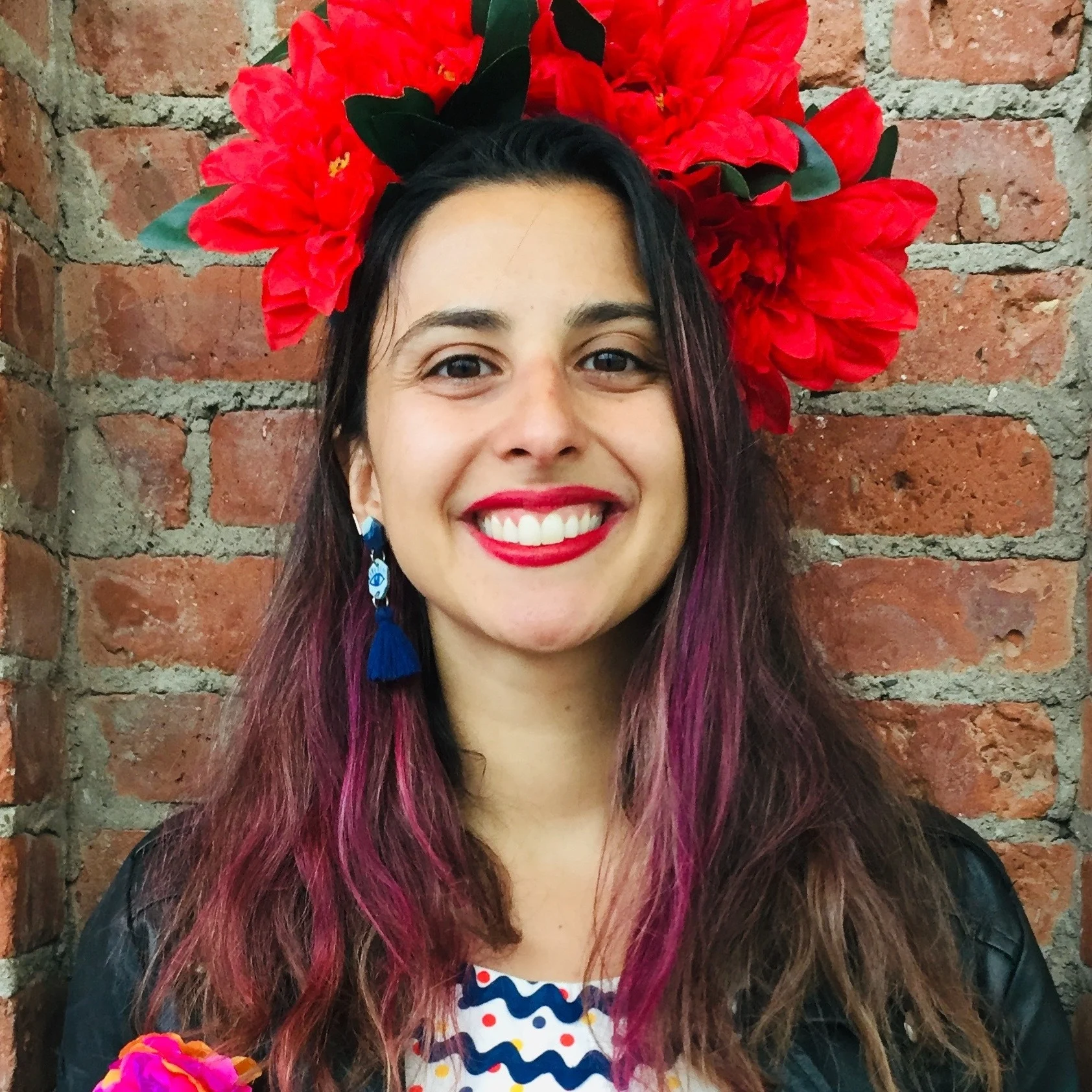Stay in the know
All our latest podcasts delivered right to your inbox.
Alonna Nicole Williams calls herself an “Energizer Bunny” with ADHD. She says she’s been bouncing off the walls since she was a little girl, all the way into the modern workplace. Mini breaks, flexible scheduling, and work accommodations have helped her create a work life that matches her ADHD needs. But it hasn’t been easy.
In this episode, Alonna opens up about crying at work and being anxious about rigid in-person offices. She explains why working remotely in cyber fraud insurance fits how her brain works. And she shares her thoughts on how to survive Zoom calls with ADHD, as well as the changing views of mental health in the Black community. Listen in for tips on how to create the best ADHD environment for you.
Related resources
Episode transcript
Alonna: Doing a Zoom training for someone with ADHD is so difficult. I couldn't keep up. I could see everybody on their camera doing different things, you know, I see a girl with this cute "Star Wars" poster in the back, and I'm missing what my boss was saying. It was overwhelming. So I ended up, like, crying. I was so, like, in tears because I felt stupid. Like, I'm not, I'm not getting it.
Eleni: From the Understood Podcast Network, this is "How'd You Get THAT Job?!," a podcast that explores the unique and often unexpected career paths of people with learning and thinking differences. My name is Eleni Matheou, and I'm a user researcher here at Understood. That means I spend a lot of time thinking about how we find jobs we love that reflect how we learn and who we are. I'll be your host.
These days, getting hacked and scammed online seems to be a risk all of us run, whether we're on social media or on email. Today's guest, Alonna Williams, works in Los Angeles in an industry that deals with those threats: cyber insurance. What we're going to talk about with Alonna today is not only her job but the environment that she works in and how that can be just as important. Welcome to the show, Alonna.
Alonna: Thank you for having me.
Eleni: So your mum thinks that the HD part of ADHD stands for "high-definition." And I wondered, what does she mean by that and how does that apply to you and your life?
Alonna: Well, she thinks the HD applies to me specifically. My energy is, like, go, go, go, go, go, all the time. Like, energetic. A lot of my friends call me Energizer Bunny, um, and so —
Eleni: Oh, that's what my friends call me. That's really funny. How does that show up for you? Like, in what ways is that also related to ADHD, do you think?
Alonna: I think it's pretty spot-on. I think if there was going to be one person that could ever characterize you spot-on, it would always be your mom, right? She's known me from the womb. And she says, even in the womb, I was constant nonstop, like, move, move, move, move, move. So much so that when she was pregnant with my brother, she thought there was something wrong with him because he didn't move. So she says from the time I was born, even in the womb, it's been high-definition. I've been on 10 since day one. And that is me. That's me. I would say my friends classify me that, everyone that I know. My friends said they wish they had ADHD — this energy, like, the energy that comes with it — because I don't need to drink coffee or Red Bull or any of it. I'm just ready to go at all times.
Eleni: That's amazing. I think the name is more warranted for you than it is for me.
Alonna: I'll take that. I'll take that badge of honor.
Eleni: Well, I love the way that you talk about that, because already you're talking about it in a really positive light, you know. It gives you this energy, and a lot of people are actually really envious of it, it sounds like. So, Alonna, I know you work in cyber insurance. What is that?
Alonna: OK, yes, let's break it down. We will cover a business, most likely a bank, a university, any type of website where they're going to collect personal information from somebody. So, like, the website Shein or another clothing´— the Gap, or anything like that. We're also going to insure stores like Target because we swipe our card at Target, right? So that's personal information. We're going to insure places like Google because, of course, you know, right? Huge cyber, they've got everybody's information. We're going to insure the government or whatever. And so that's what we do. And we insure them from hacks. And what that means is, for instance, we were actually on the Target hack that happened a few years ago, where a million people's identities were exposed.
We paid out on that claim. And with that claim, that means that we're gonna, Target had to shut down, right, their entire services. So we're going to pay them for the money that they lost for that day. We're going to pay out to the individual that lost money because a hacker, you know, whatever they do, they can go and take your whole savings, right? That would be devastating. So we insure that as well, especially in the age that we're in. With COVID, the amount of hacks went up astronomically. Like, we saw a 300 percent increase. You never think you'll be exposed. And after COVID, the world saw how exposed we were because everyone was at home. The hackers had nothing to do. It was their — they were living their best life, right? Because everybody was online shopping. Um, so, primarily it's definitely from being hacked.
Well, there is one more thing that we do cover — ransom, like ransomware, because people will hold your, go into, hack your account, right? So you can get it back for a certain amount of money. So that also is a part of it too.
Eleni: And you mentioned a lot of organizations. What about individuals? Like, do I need cyber insurance? Is that something I should be worried about?
Alonna: Yes, you absolutely should be, but we do commercial insurance, cyber insurance, so you would need, like, a smaller one. But that is a thing, especially if you're highly exposed. Someone like Beyoncé would definitely want to be protected from a cyber hack.
Eleni: Oh, I wish I was Beyoncé.
Alonna: Don't we all? I tell myself I am every day.
Eleni: Beyoncé Energizer Bunny. So we talked about what cyber insurance is, but what do you do specifically in that space?
Alonna: I am an underwriting assistant. So Target would go to a broker. The broker would come to us saying this person needs coverage. So my underwriter is the person that's going to determine how much premium's going to be, based on the type of risk that it is. So once my underwriter determines that, he or she pushes it down to me, and then I will quote it. If the insured, if Target likes the price that we get them — I also work in big middle market, so I don't see anything under $35 million in premium. There is a smaller market, too, but I only do the higher one. They'll give it to me if Target likes the price premium that we're offering them and the limit and the coverage that they're giving, they'll come back and they'll be like, they want to bind it. And I'm sure everyone knows what a binder is, because we've all got car insurance, you know, the little thing that we keep in our car. I'm going to send them that. And then if there are subjectivities, something that they may need to fill out an application, my underwriter may want more information on how the company has implemented their own security, protect themselves from a hack, that's all going to determine the premium and what type of endorsements are on their policy. And so once all that's done, then I'll send out the policy, and that's primarily what I do. I do quoting and binding. It's pretty much 98 percent of my job.
Eleni: And do you like it?
Alonna: I like it for what it brings to me in terms of my life. It is probably the most flexible job I could ever imagine. I just, I honestly think of it as an absolute blessing from Jesus himself, because there are not a lot of people that can work from their bed every single day with flexible hours. So my job, they don't have set hours or set times that you have to work, just as long as you hit 37.5 in the week. So I often take two- to four-hour breaks in between, then start working again. I just got back from Atlanta because I was at my cousin's bachelorette party, and I was able to work from Atlanta. I didn't have to take any time off. They also, it's a really fun company, I mean, they brought comedians in, they did a Zoom with us, so that's what I like about it. It's a very flexible job.
Eleni: Yeah. I think it's really refreshing to hear that, you know, sometimes it's not necessarily about the work itself, but perhaps, like, the environment or other factors that make you enjoy it.
Alonna: The work-life balance.
Eleni: Yeah, exactly. Workplace balance. Actually, one thing that we talk about a lot at Understood is this idea of environments being either enabling or disabling, so people can often feel more or less disabled depending on how accommodating the environment is or not. And I think it's really interesting that you talked about flexibility and, like, taking really long breaks. I would love to hear more about how that might relate to your ADHD or not.
Alonna: I started working in Atlanta at an insurance company. And it was a more rigid, strict schedule. You had to come in every single day, 7 to 3, you had a 30-minute break, you had two 15-minute breaks, and you had to sit at your seat.
That was not conducive to my ADHD. I cannot sit for longer than two to three hours. Like, my mind's going crazy. And then I started zoning in on other things, and I always have to listen to music when I'm working, otherwise I'll get distracted. Instantly. And so I would have to force myself to take breaks because it wasn't ingrained in that particular work culture.
Versus now that I'm in California at this particular company, where you can go into office or work from home, it's a lot more accommodating to someone that has ADHD, because I can work for an hour, take a 10-minute break, get up from my bed, go walk around, do something else, snack on something, then come back to work. I don't feel the pressure that I felt at my previous company, and that helps. They have a huge mental health program where I work, and so that helps too. They make sure you don't feel disabled at this job. Like, no matter what your disability is, they are super accommodating, and it works for me. And also with it being a fun environment, when I do go into the office in LA, oh my God. They have, like, you can play golf. We have, like, an espresso machine. And then being in downtown LA, I can go out, and go out and walk and breathe, and give my mind the break that it needs. Clarity. Yes.
Eleni: Yeah, I love to hear that enthusiasm. Was that an intentional shift, like, talking about the job in Atlanta compared to the job in California, were you aware that the previous job was negatively impacting you in that way, and did you make an intentional transition to something different? Or was this something you discovered afterwards, like upon reflecting or comparing the two.
Alonna: A lot of jobs are definitely not accommodating to ADHD. When I first moved to California, I got this job at this brokerage, which I hated. I was only there for six weeks. It was dreadful, super boring. But I kept having to get up, like, I would go on my walks or whatever, and everybody sat down the entire time. They didn't even take their breaks at this job. So one of the girls that sat next to me, she was like, "I just want you to know that as much as you get up, they're taking notes, like, they can tell that you're always getting up from your seat, that you're always going on break." I was shook! I couldn't believe it, because number one, it's legal to take a break, right? Like, what? Um, it was not an accommodating job to ADHD, versus now, where I already mentioned how I'm able to get up and do what I want, so it was a complete shock to me how accommodating they were.
Eleni: We do talk about this a lot in my research, this idea of kind of being aware of what environments work for you and don't work for you, and, you know, acknowledging that not every environment works for every person. So you mentioned that you find it difficult to sit in one place and, you know, I think being really super self-aware of that, I guess — do you have any advice for other people with ADHD in terms of thinking about what kind of environments to look out for, or, you know, what might be, like, helpful or accommodating for them in a workplace environment?
Alonna: A lot of us are extroverted people, so being in that type of environment, where we're able to talk with people, connect with people, typically is key for us. Even when I worked as a server, that was ideal for me because I was seeing, talking to multiple people all day long, seeing different people. And every time I hit a table, it was something different. And I think that is important for someone like me.
Eleni: It sounds like you found a workplace that, as you said, you know, is really accommodating. Like, are there any challenges that come up at work or in other ways that, you know, ADHD might impact you in your life?
Alonna: So we have training, right, for work because everything's on digital now. Doing a Zoom training for someone with ADHD is so difficult. Because number one, I'm doing it at my home. And I literally live in a two-bedroom zoo, with six people and a dog. So there's always something going on. That's the price of living in LA. So we were doing this — they wanted us to take on rating as, um, that's something that the underwriter normally does. Like, remember I was talking about how the underwriter will give the broker the premium that they want to, based on the risk? They wanted to bring that task on down to us UAs. So when I say UA, I mean underwriting assistant, which is my job.
And the training for that with — there's, like, 20 UAs on our team — was so complex. I couldn't keep up. I mean, for one, I feel like my manager's running through it and, and, and I'm, I'm on the older side. I'm 36, right? And a lot of my team is young. Um, so they're just out of college and fresh and they can get things. And I'm not getting that at this age, number one. Number two, you're talking too fast. Number three, everybody's, I could see everybody in their camera doing different things. You know, I see a girl with this cute "Star Wars" poster in the back and I'm missing what my boss was saying about how to rate. It was overwhelming. So I ended up, like, crying, like, like, I was so, like, in tears because I felt stupid. Like, I'm not, I'm not getting it.
So, um, my boss knew, like — this, my God, it speak volumes of her. She could just feel it. So she IMs me on the side, and she was like, "Are you, how are you doing with this?" And I was like, I'm not, I'm not, I'm not getting this at all. I can't keep up. And she was like, "Don't worry about it. We, you and I will do a private," like a private training. And that's what we did, and I was able to get it. And so now, it's, now because she knows I can't do training that way, whenever she teaches something to the group, I just have my own separate session with her so that I can get on the same page.
Eleni: Yeah, that's such a beautiful demonstration of a workplace accommodation that I think a lot of people might never even think of asking for. So I love that you shared that. And also how amazingly, like, empathetic and, like, responsive of your boss to — yeah, like, what all bosses should aspire to, right?
Alonna: Yes. They do. They should.
Eleni: Yeah. What are some other ways that you're able to get through your workday and, like, cope with some of the ADHD challenges?
Alonna: In addition to taking a break, taking many breaks, I am on medication. I was a handful to my parents until I got to college. They didn't know what to do with me. And that's when I got diagnosed that I had ADHD because being an '80s baby, that was not a thing, OK? You were just a problem child. Getting on the medication, getting on Adderall changed everything for me. It was the first time that I had ever, I didn't know that you were able to sit in class and, and, and pay attention to the teacher by itself. Up until that point, that was never a thing in my life. I didn't know that I could have the ability to write a 10-page paper. Seriously, before it would take me two weeks to write a paper, because I just could never sit that long in a library, doing the research. I was busting out these papers in two days. That was a new thing. And so I still am on medication to this day because that's, um, it's how I get by.
Eleni: I think it's worth noting at Understood, we're not necessarily for or against medication; we're just super supportive of whatever works for you. So I'm glad that you found something that works for you. And it sounds like you didn't get a diagnosis until college, you said. That was the first time that you were on medication. And it's kind of interesting because, you were saying, you know, your mom had made a lot of these observations about you from a really young age. So why do you think it took so long to get that diagnosis and that acknowledgment of what might be going on?
Alonna: I would say probably a couple of reasons. I grew up in the '90s and the 2000s. It was still — ADHD was still very much undercover at that time. And then two, um, mental health, especially in the Black community, is something that is not talking about. Um, so rather than seeing if maybe there was a reason why I was all over the place as a kid, it was just easier for them just to let me do my own crazy things and, um, deal with the teacher whenever the teacher came in with some new disciplinary thing, some new plan where I had to sit in the front and whatever. Um, so I would say that would be the two reasons would be the delay in my diagnosis.
Eleni: Yeah. And do you think that's shifting at all?
Alonna: Definitely. Yeah.
Eleni: Like, what, what changes have you observed, like, in your own community?
Alonna: Just the fact that we're talking about it. I mean, just the open conversation is something that was so taboo just 10 years ago. And I think that's the good thing about living now is that you just can be who you are, you know, whether it's ADHD or, I don't know, just be you, right?
Eleni: Yeah. You know, I think that I had imagined, you know, insurance to be not very interesting. And even the way that you're describing it, you've added this layer of excitement and made it sound really interesting. And a lot of your stories are very visceral. I think you're, you sound like an incredibly smart and interesting person. So I hope that you see that.
Alonna: Keep going, keep going, just keep going, you don't have to stop. No, thank you — seriously, thank you.
Eleni: This has been "How'd You Get THAT Job?!," a part of the Understood Podcast Network. You can listen and subscribe to "How'd You Get THAT Job?!" on Apple, Spotify, or wherever you get your podcasts. And if you like what you heard today, tell someone about it.
"How'd You Get THAT Job?!" is for you. So we want to make sure you're getting what you need. Go to u.org/thatjob to share your thoughts and to find resources from every episode. That's the letter U, as in Understood, dot O R G, slash that job.
Do you have a learning difference and a job you're passionate about? Email us at thatjob@understood.org. If you'd like to tell us how you got THAT job, we'd love to hear from you. As a nonprofit and social impact organization, Understood relies on the help of listeners like you to create podcasts like this one, to reach and support more people in more places. We have an ambitious mission to shape the world for difference, and we welcome you to join us in achieving our goals. Learn more at understood.org/mission.
"How'd You Get THAT Job?!" was created by Andrew Lee and is produced by Gretchen Vierstra and Justin D. Wright, who also wrote our theme song. Laura Key is our editorial director at Understood. Scott Cocchiere is our creative director. Seth Melnick and Briana Berry are our production directors. Thanks again for listening.
Host
Eleni Matheou
leads user research for Understood. She helps Understood to center its work on the lived experiences and voices of people who learn and think differently.
Latest episodes
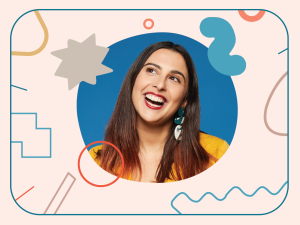
June 28, 2023
In the series finale of How’d You Get THAT Job?!, host Eleni Matheou unpacks what we’ve learned about how people thrive at work.

June 14, 2023
Nathan Friedman is the co-president and chief marketing officer of Understood.org. And he has dyslexia and ADHD. Learn how he got into the C-suite.
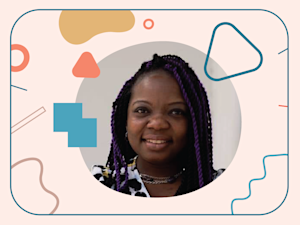
May 31, 2023
Dr. Loucresie Rupert is a child, adolescent, and adult psychiatrist with ADHD. She didn’t have an easy time getting her diagnosis as a Black woman.
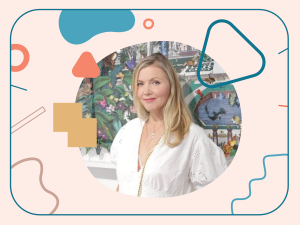
May 17, 2023
Kristjana Williams is a London-based Icelandic artist with dyslexia. She wasn’t diagnosed until she was 25, and now she has her own studio.

May 3, 2023
Aideé Chávez Frescas has ADHD, and is a senior social media manager at Understood. Her posts help end stigma and show others they’re not alone.
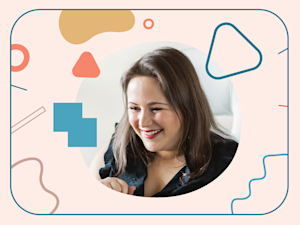
April 19, 2023
Alex Gilbert is a career coach with ADHD and dyslexia. After working in leadership development for years, she started her own coaching business.
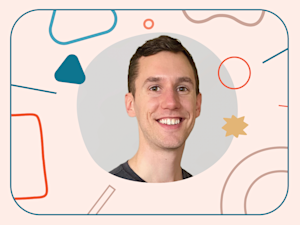
April 5, 2023
Dan Reis was diagnosed with ADHD during the pandemic. Now, he’s made it his mission to explore coping strategies to help him get his work done.
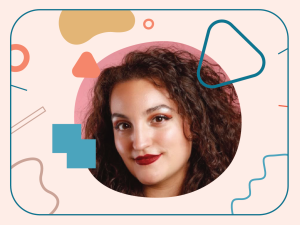
March 22, 2023
Rachel Basoco’s two jobs keep things interesting for her ADHD. She works full time at Fidelity, and part time at 11:11 Media, Paris Hilton’s company.
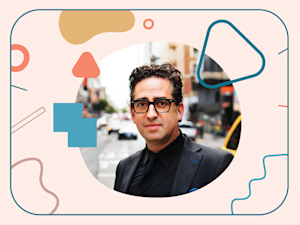
March 8, 2023
Gil Gershoni says that everything he does is dyslexic. He founded the branding firm Gershoni Creative and hosts the Dyslexic Design Thinking podcast.
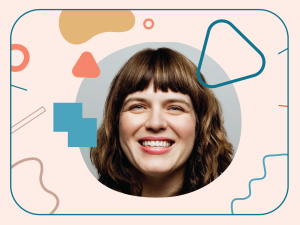
February 22, 2023
Claire Odom is a psychotherapist with ADHD. She’s also a disability inclusion consultant who has advice on navigating the workplace.

